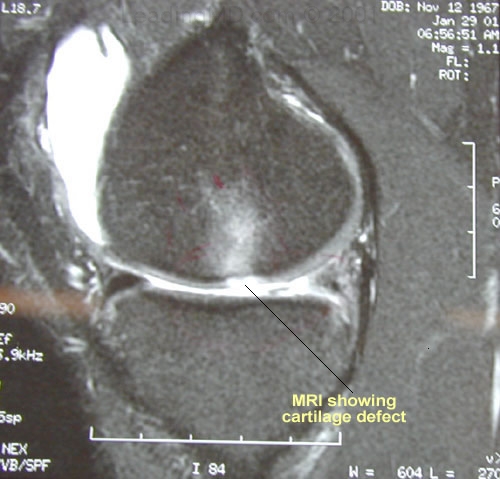Microfracture Technique - Diagnosis

After articular cartilage damage has been diagnosed, what factors are indications for microfracture?
The general indications for microfracture are:
- The patient has a full-thickness defect (loss of articular cartilage down to the bone) in either a weightbearing area between the femur and tibia or in an area of contact between the back of the patella and the groove it slides in.
- The patient has unstable cartilage covering the underlying bone.
- The patient has degenerative changes in a knee that is normally aligned.
Important factors to consider for use of the microfracture procedure are:
- The patient's age (as a relative indication)
- The patient's activity level
- Whether or not the patient has acceptable alignment of the knee. "Knock-kneed" or "bowlegged" patients may not be good cadidates for this procedure.
When is microfracture not recommended for a patient?
- the patient's knee is poorly aligned.
- the patient's chondral defect is not all the way through the full thickness of the cartilage.
- the patient is not willing to follow a strict and rigorous rehabilitation protocol.
- the patient is older (generally over 65) and might have difficulty with crutch use and the rehabilitation process.
- the patient has disease-induced arthritis, cartilage disease, or any disease affecting the immune system (e.g. rheumatoid arthritis).
BackNext